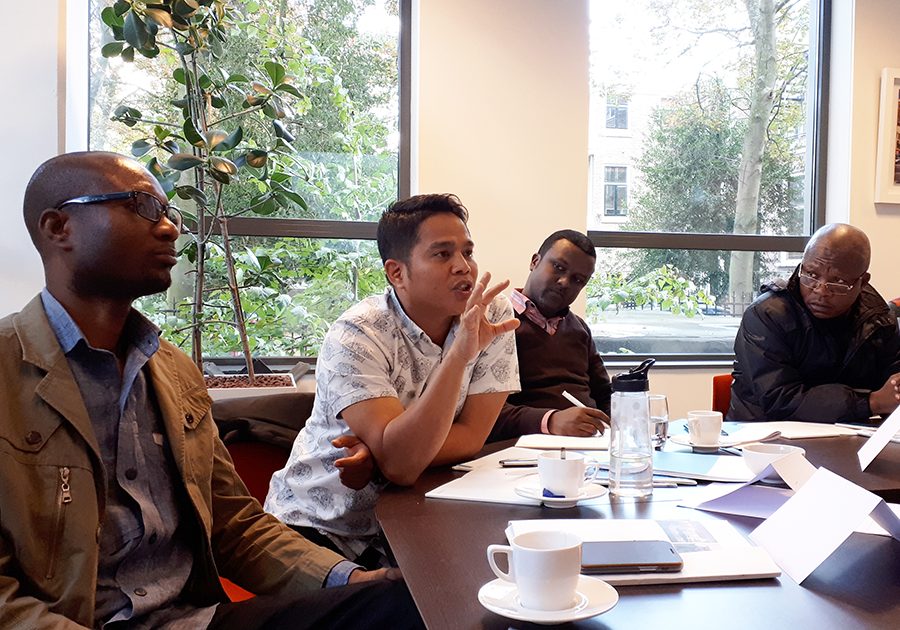Last month, participants working in different conflict-affected areas from around the world convened at the Academy for a training course on Conflict, Rule of Law and Local Security. The training was organized in cooperation with Transition International and took place from 29 October to 9 November.

The training focused on conflict prevention as a key component of improving security at the local level. Combining theory and practice, participants took part in several sessions including preventing violent extremism, security sector reform, inclusive governance, and human security.
“The course taught me how to look at different perspectives regarding conflict and how these [perspectives] can be underrepresented in state structures.”
Expert-led sessions and interactive exercises sought to challenge traditional notions of state-centered security. Participants identified and analyzed the root causes and driving forces of violent extremism and conflict, and discussed inclusive governance processes that would help achieve stability and human security.
As another participant commented, “I think my state focuses only on state security. But in this course, I have learned that human security is more important. I can take home almost all of the materials I have learned, and I am hopeful my new gained knowledge will help my community improve its security sector.”
This practice-oriented training approach was especially present during the full-day simulation exercise. The participants engaged in dialogue with role-play actors, including police officers, militia leaders, tribal elders, and local citizens, to collect relevant information and present a comprehensive Community Violence Reduction Plan. By enabling them to combine extensive background readings about the case with real-life fieldwork, the simulation created a realistic experience.
“In a world where the majority of states show signs of fragility, it becomes ever more important to work directly with local authorities in communities to promote the rule of law and security. This couse provides participants with the tools for that.”
Pall A. Davidson
Rule of Law Desk Coordinator at Transition International
In addition to the simulation exercises, conflict analyses and the designs of comprehensive local security plans, participants explored the legal frameworks in post-conflict settings and assessed the existing tools of transitional justice related to their working context. This tailored approach emphasised the principles of community security and how best to apply its core components in unique settings.
During the final days, the training sought to strengthen participants knowledge on causes and dimensions of conflict as well as to assess the role of state actors and (international) legal instruments in promoting security at the community level. The SDG Goal 16 – peace, justice, and strong institutions – provided added context for discussions about the barriers to accessing justice.
To help mitigate these barriers, the course gave special focus to methodologies for improving the role of women and socially excluded groups. Participants also took part in a site visit to the International Criminal Court to gain insights into its role and competencies.
As one participant stated, “All these tools, topics and exercises have been very relevant to my work. Even in relatively stable countries, there is still much to be done about community and human security.”
The Academy’s next training on Conflict, Security and Rule of Law will take place from 28 October to November 8, 2019.
Related courses
We offer a diversity of courses throughout the year. Here are several other courses you might like.

